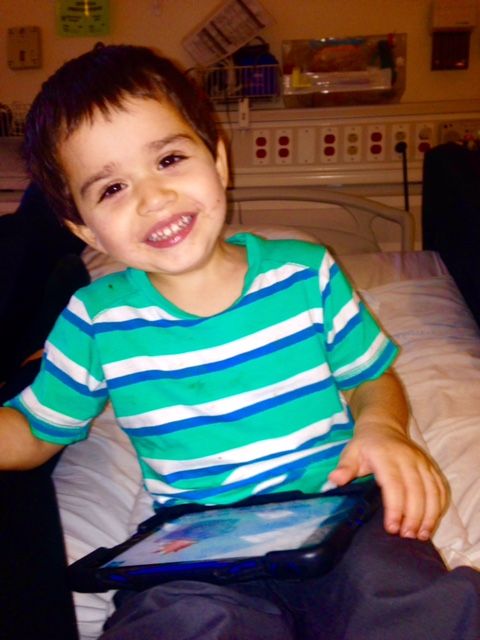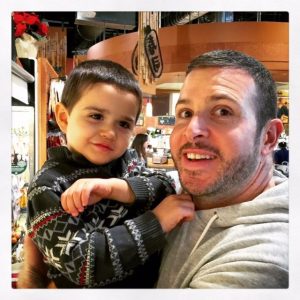 When Noah was diagnosed with ASD the day after his second birthday, it was both a shock and a relief to his mom Lindsay.
When Noah was diagnosed with ASD the day after his second birthday, it was both a shock and a relief to his mom Lindsay.
“I knew he was developmentally delayed and thought he had some signs of autism but I was shocked when I heard the diagnosis. I was also relieved, because for the first time, I had a reason for all of the madness in our house. Until his diagnosis I just thought I was a bad mom not able to connect to my son,” Lindsay said.
She recalls that Noah would rarely respond to his name, had little to no engagement with people, and complete aversion to any kind of physical touch.
After the diagnosis, Noah enrolled in the Tadpole study at The UW Autism Center right away and started in-home Applied Behavior Analysis (ABA) therapy 3 hours a day, 5 days a week for a year, which “did wonders for him,” according to Lindsay.
 When the Tadpole study came to end, Lindsay wanted to continue Noah’s ABA therapy, but Group Health denied coverage. She called WAAA and spoke to an insurance advocate who looked into her plan, answered her many questions, and helped Lindsay talk to her insurance company.
When the Tadpole study came to end, Lindsay wanted to continue Noah’s ABA therapy, but Group Health denied coverage. She called WAAA and spoke to an insurance advocate who looked into her plan, answered her many questions, and helped Lindsay talk to her insurance company.
“WAAA really helped me understand my plan and what questions to ask and we were able to get ABA therapy covered for Noah.”
These days 3-year-old Noah is making good progress at home and at his developmental preschool. He loves being outside and running around at parks and on trails, watching Disney movies, riding in the car, ice cream, preschool, and art.
In his ABA therapy, Noah is working on engaging with other people. He is nonverbal and has a PECS board that he uses to communicate what he wants. He’s also working on making eye contact and increasing his attention span. In addition to ABA, Noah also receives physical, occupational, and speech therapies.
“I’m extremely hopeful that Noah will continue to get the care he deserves. We may have to fight but I know that having organizations like WAAA helps me feel supported and understood,” Lindsay said.


